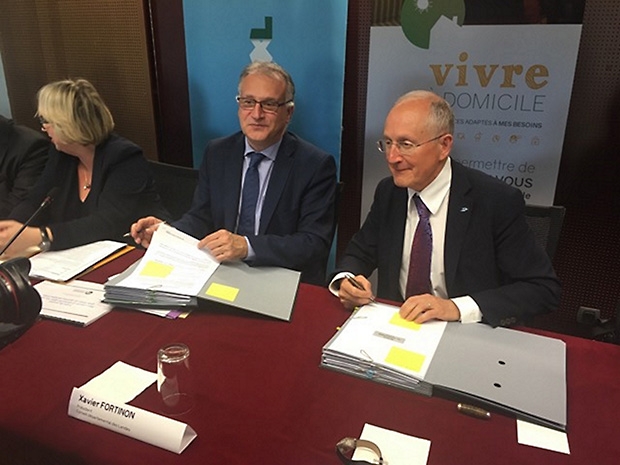Presided over by Xavier Fortinon, chairman of the Les Landes departmental council (photographed with Philippe Wahl), and headed by Raphaël Tamponnet, Head of Development and Partnerships at La Poste, XL Autonomie’s mission will be to roll out the “Live at home” public service over the whole department of Les Landes over 5 years.
2,500 people will benefit from it, whether they are elderly, disabled or affected by a chronic illness. The service is structured around identifying needs and vulnerabilities, providing a package of individualised services (with the installation of equipment and guidance in how to use it) and personalised human support to adjust the services according to life events.
“Live at home” is available in the form of a monthly flat-rate subscription of €30 inclusive of VAT [01] eligible for the tax credit for services to individuals, that is €15 inclusive of VAT/month after tax deduction.
Work will be undertaken in close collaboration with the local gerontological network to ensure that additional requests are forwarded and dealt with smoothly (services to individuals, home adaptations).
For La Poste, which provides this service, it is a historic turning point in its role of human contact and public and regional confidence, a forerunner of a new model of prevention and support at a national level.

